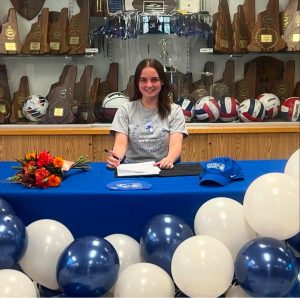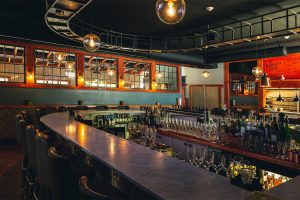Sleeping with eyes open?
Students frequently stop off at the local coffee store, Dunkin’ Donuts, before or after school.
December 7, 2015
Students here at Hollis Brookline and all around the country may not always be receiving the right amount of sleep each night. With the busy schedules that most students have, lack of sleep could be a huge impact on students performances in class, on the court, or outside of school.
According to National Sleep Foundation, teenagers need 8 to 10 hours of sleep each night in order to function at their best. If they don’t get this time, there are many health issues, problems and habits that come with it, such as lack of concentration and patience for learning, weight gain, or even driving while drowsy. Some students who lack sleep often depend on caffeine to help them get through the day through coffee or other energy drinks.
Frequent coffee drinker Lex Chilton ‘16 said, “I personally love the taste of coffee and don’t know what I’d do without it. I usually drink it twice everyday, because by the time I get home from the gym and finish my homework each night, it leads me to only get 5 to 7 hours of sleep.”
Chilton isn’t the only student who is struggling with lack of sleep. Many students in America are sleep deprived and the consequences of this can be very dangerous. UCLA’s Sleep Disorders Center says, “Crashes related to drowsy driving take the lives of more than 1,550 people every year.”
Junior athlete Kenzie Day ‘17 juggles basketball, club soccer and on top of that, her homework. “My day never ends. I go from basketball to soccer to doing homework and before I know it, I’m back to school. By the time I get home at night I’m too tired to do any homework.”
Lack of sleep is a problem that is often underrated. Some people joke about not getting enough sleep each night, but really it’s a huge deal. Maybe Hollis Brookline will seriously consider starting school later, giving less homework, or even selling coffee at the school cafeteria.















